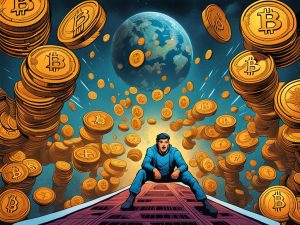JPorgan on De-Dollarization: The Bad News and the Good News
JPorgan, the global investment bank, has issued a warning about the potential risks of the de-dollarization of the U.S. dollar. The bank’s strategists highlighted rising tensions between the U.S. and China, as well as concerns about political instability within the United States.
- If U.S.-China tensions intensify, it could lead to de-globalization in trade and finance.
- Political dysfunction within the U.S. may hinder efforts to manage the national debt and stabilize the economy.
- An intensifying rivalry between the U.S. and China, described as a possible “Cold War 2.0,” poses a potential danger.
- Shifting away from the U.S. dollar or destabilizing stocks could have broad consequences across asset classes.
- While the U.S. dollar may lose its dominance, it is unlikely to be immediately replaced as the primary reserve currency within the next decade.
JPorgan believes that a more plausible scenario is a gradual “partial de-dollarization,” with China assuming a more significant role alongside nations that are not aligned with the U.S.
In conclusion, experts, including S&P Global economists and Nobel laureate Paul Krugman, foresee the potential decline of the U.S. dollar’s dominance. While the future is uncertain, it is clear that the dynamics of global finance are changing, and the U.S. dollar may face challenges to maintain its stronghold.


 By
By
 By
By
 By
By

 By
By
 By
By